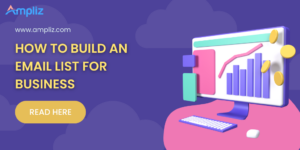Sales Intelligence is a lucrative investment option for any business. Especially, if you are into B2B in the APAC region, a data intelligence solution for the sales team is the right call!
With the best sales intelligence solutions in hand, you generate more and better quality leads, as well as, convert them into long-term customers. Sales intelligence tools are a fantastic resource for businesses for developing sales in a relevant and targeted way that helps improve commercial productivity.
Data intelligence solutions for sales bring you a good comprehensive knowledge of what happens in the market. Know that not all business sales intelligence is the same. Based on budget, needs, business sector, and various other business factors, the right solution is not the same as what is for the other company.
So, you need to ask a few questions before you buy a sales intelligence solution.
15 Sales Intelligence Questions to Ask
Have better knowledge of what happens in your niche or industry. The best sales intelligence tools help win leads and take suitable actions at the right moment.
1. What is the frequency of data updates?
The first and most important sales intelligence questions to ask service providers are data updates. On average, about 35% of data in CRM becomes stale or obsolete every year. So, it is a good reason to have a sales intelligence solution you are about to acquire that is continuous and reasonable. The updating system helps keep the information up to date and relevant for your business.
However, continuous updates are an ideal configuration. This happens rarely with any sales intelligence solution provider. When you choose a sales intelligence solutions, make sure that the data is updated every 2 or 3 months.
2. How do you avoid data duplication?
In case you already have the database, you certainly don’t want to pay for leads by your sales intelligence provider for the ones you already have! Make sure that you ask your seller if his tool has a system to filter the database. This helps in avoiding doubling up or at least they carry out an audit of the database. This action needs to be taken before you have the tool installed to avoid carrying out the manual sorting. When you are looking for data intelligence solutions for sales, you must focus to avoid duplication of the data.
3. What is the degree of CRM compatibility?
It is one of the most important questions. Today, almost every company has a CRM used by the sales team to run their business. Generally, sales intelligence solutions have two ways to use them.
The first “Stand Alone” is the interface for the sales intelligence tool- a SaaS application that is not connected to CRM. The second method is to make them available that are compatible with the CRM. The latter seems to be more functional and reasonable as it does not disorient sales staff and keeps them within the CRM.
4. How are data and information collected?
There are several ways that sales intelligence providers collect their data. And, perhaps, not all ways are suitable for your business. Some of them even clutter your system with inappropriate or unnecessary information.
Ideally, they use crowdsourcing, social networking, trawling the web, and a manual selection stage for gathering data. If you find a provider that offers solutions combining all the methods- it is the most perfect!
The sales intelligence solutions provider you choose must have advanced technology and enough data engineers to help gather, filter and record the data on prospects. So, when you select the provider, ask them about the scope of sources used, technology, and resources used to collect information.
5. How do you take care of concerns or questions that I have regarding the solution?
A good sales intelligence solution provider should be easy and intuitive in function. That being said, your sales team software or a solution that actually solves their problem and eases things for them. Over and above, sales team training s a must for such a newly introduced solution or tool.
Besides this, the sales intelligence provider must be able to assist and answer concerns or queries regarding the tool’s functions or operation. They must be available for kinds of different queries that arise and offer a quick resolution via email or phone call or any other preferred method.
6. Do you allow unedited user-controlled data?
In case you come across a provider who only sources crowd-sourced data, you may want to skip them! Crowd-sourcing alone as data aggregation does not make up for the incentive and for the users trying to have the input of data as much as possible. This means that they will prioritize quantity over quality- the opposite of what you want!
7. How can data be tested for suitability?
If you are using business intelligence by a sales intelligence provider, then you need to test the database for two things- relevance and accuracy. Accuracy is great and relevance is crucially important that people may not easily think of. Every business has its own ways or methods to test the data. Understand what your biggest intelligence needs are. Next, compare your collected data to the one that the vendor provides and test how they streamline with relevancy and accuracy! Accuracy of the data is the most important sales intelligence questions to ask
8. Do you have to buy the same data to have up-to-date information?
This question will help you scrape out the possible loopholes in the database by the business intelligence vendors. Where vendors may look good at one glance because of their low price or starting price, but they may have predatory fees in line with the data. In case you do not get straight answers, it is safer to ask point-blank questions about their fee plans.
9. How to avoid downloading duplicate data?
A well-engineered sales intelligence platform surely has all the protocols in line that flag the duplicate entries in the data. On the other hand, a comparatively less sophisticated platform that does not pick up new information or data with records that has minor differences. Ask them how to identify duplicate data, removal process for the duplicates, and how to merge the data on the admin side.
10. How to make sure to not override old data with a new one?
In case you have a database with accurate and relevant information, you do not want to interfere with that good information with the new one. Or, the information may be overwritten by the wrong and irrelevant by the sales intelligence platform. Any data management solution tool you use must allow you to set permissions that can be changed, and ask who can change them.
11. Do you offer API in case of more control?
Data needs to evolve at regular intervals. You need to find ways that help you integrate information with new workflows and processes. Application programming interfaces help with such situations. Learn more about API, its integration, and how that impacts the performance of the business.
12. What level of detail can we have?
Even though the vendor defines the ideal lead or perfect lead or the best prospect, you need to make sure you really have the necessary detail. This might not be enough for you to have the criteria met that you need. As you really want to have the ideal customer profile (ICP), you need to have as much filtering as possible. Make sure to put together a list of criteria and explore how the sales intelligence provider stacks up.
13. What is the deployment process and timeline?
It is crucial to understand what is the deployment process and timeline. Know about the best practices and processes to get the hang of the sales intelligence solution. In case they do not have the documentation or estimates for their deployment, it might be a red flag! You need a provider who helps you at every part of the stage and helps you extract the most out of the sales intelligence solution. As a result, you can witness a better return on investment for your business.
14. How long have you been around?
As the sales intelligence market grows at an exponential pace, many newbies and channel partners are almost everywhere. However, it also means that you can create a competitive environment where you benefit the most from products and services. And, longevity is a good indicator that providers know what they are offering and they are doing their best too. A company with a professional and experienced team, strong leadership, and a good market presence should be at the top of your list.
How to use business intelligence data to increase sales?
So are you ready to invest in the data intelligence solutions for sale but overwhelmed with the sheer market size? It makes sense. Sales intelligence marketer has expanded over the years and is projected to grow at a CAGR of 10.6% from 2021 to 2030.
If you are really looking out for the best sales intelligence platform that meets your business needs, then these are the few questions that you must have straight-cut answers to. Based on the replies that you receive from the multiple providers in your hand, you can judge who is most relevant for your business- whether an SME or a small firm, or an MNC.
Arm your sales team with Ampliz sales intelligence solutions. It is essential for B2B as buyers are getting smarter and sellers need to be parallel with it. Of course, not all sales intelligence providers are the same. These questions will help you understand to feel prepared for the vendors and find the right vendor for your business.
And, this is where you can trust Ampliz! It is one of the leading B2B database providers that offers a comprehensive list of prospects with their detailed information. It contains details on their technographic, geographic, demographics, and firmographics to offer data to your business. These data points assist marketers to reach out to their prospects with hyper-personalized messages.



